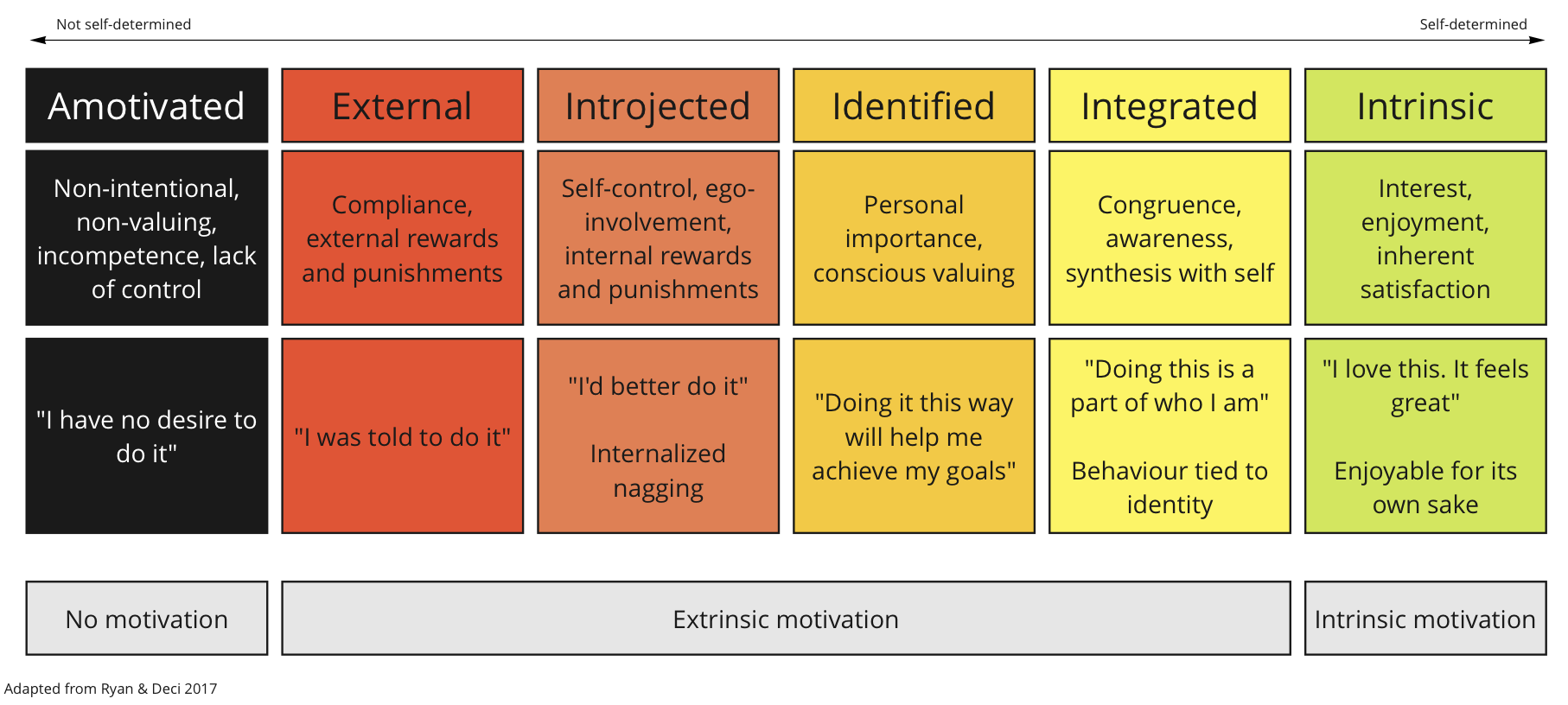While in a meeting, I heard “It’s easier to get things done when there is a deadline”, and that tells me something about motivation, or more specifically, lack of it.
The Self-Determination Theory (SDT) motivation model identifies six different stages of motivation ranging from Amotivation (not motivated at all) all the way through to Intrinsic (the work is enjoyable for it’s own sake).

When someone is asking for a deadline, that tells us that they’re currently Amotivated and they want at least some motivation. That deadline will shift us into External motivation which will at least get us moving forward, even if it’s the least effective way possible.
We could give them what they’re asking for, or we could try to get them even further to the right. The best results would come from being Intrinsically motivated, but anything further to the right will be a win.
Do we want to do the bare minimum or do we want much better than that? Obviously, the more motivated we are, the better the results will be.
How would we make that shift to the right? At a high level, SDT tells us that there are three key psychological needs, and the more of these that we have, the further to the right we’ll be. They are autonomy, competence, and relatedness.
Autonomy is the psychological need to feel in control of one’s own behaviors and goals, to feel that we have control over our own decisions and actions. That not to say that we’ll always have complete control of any situation - there will always be laws, or rules that we have to work within. This is a sliding scale where more autonomy is better than less autonomy. It’s ok that I’ve been told what to work on, if I can decide how I’m going to do it. If I’m told both what and how then my autonomy has been stripped away.
Management often struggles to give up control to their people and then when less autonomy is provided, they wonder why people are less motivated.
Autonomy is also a key component of psychological safety, and without that our effectiveness drops as well.
Competence is the need to feel effective and capable, know that we have the skills to achieve our goals. Are we able to use our skills effectively in the organization or have we been put in a silo that only allows us to use a subset of those skills?
Relatedness is the need to feel connected to others and a sense of belonging in a social group. Are we actually part of a team working towards a common goal or are we individuals in silos of our own? It’s worth calling out that while we all need other people, we don’t all need the same types or numbers of relationships. There is no “one size fits all”.
Coming back to our starting point, setting a deadline does provide some motivation, although it’s the least effective form, and can have other negative side effects. If we want better motivation, we need to shift people to the right on the motivation model, and for that we need to look towards autonomy, competence, and relatedness.

